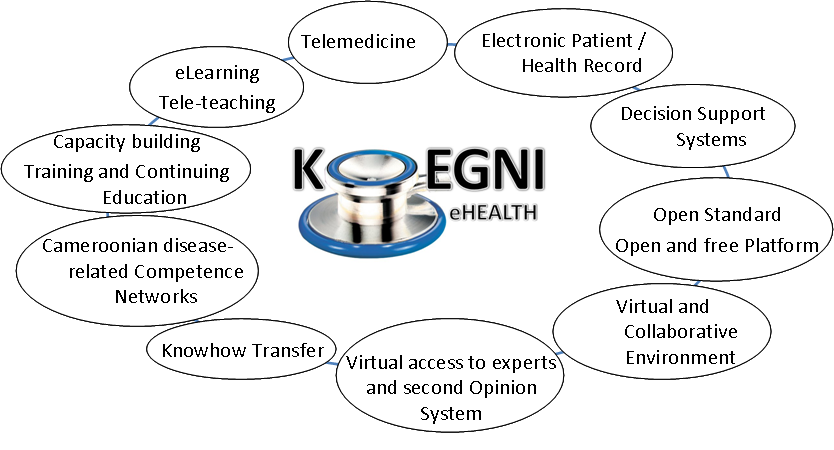The health system in Cameroon has to deal with several health problems which increasingly affect the economically active population (e.g. AIDS,Multidrug-resistant tuberculosis, increasing rate of cardiovascular or other chronic diseases)in addition to maternal and infantilehealth problems.
In order to carry out strategic planning, decision-makers need reliable data which are not readily available. In addition, a drastic shortage of professionals is an obstacle to accessing good, adequate and just health care, both in urban, sub-urban and rural areas. Thus, the few available clinicians, patients (and their relations) as well as other active players of the health system need support throughout the care process. Experience gathered on AIDS and tuberculosis in other developing countries has proved that where properly implemented, innovative, locally appropriate cost-effective ehealth-components such as telemedicine, electronic patient record (EPR), decision support systems (DSS) amongst others, can lead to considerable improvement in the care process.
For this reason, an interdisciplinary and experimented team of professionals from the Cameroon Diaspora in Germany implemented an innovative, scientifically validated eHealth-concept in Cameroon with the aim of sustainably improving the current situation and contributing to bridging the gap that results from lack of professionals. This concept was developed for Sub-Saharan-Africa by a member of the Cameroonian Diaspora in his research work with the aim of addressing the following Millennium Development Goals (MDGs):
- Reduce the proportion of the world population suffering from extreme poverty and hunger by half (MDG 1)
- Reduce child mortality (MDG 4)
- Improve maternal health (MDG 5)
- Fight HIV / AIDS, malaria and other communicable diseases (MDG 6)
- Build global partnerships for development (MDG 8).

